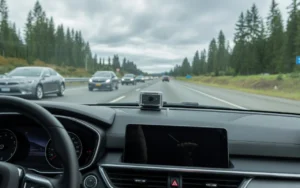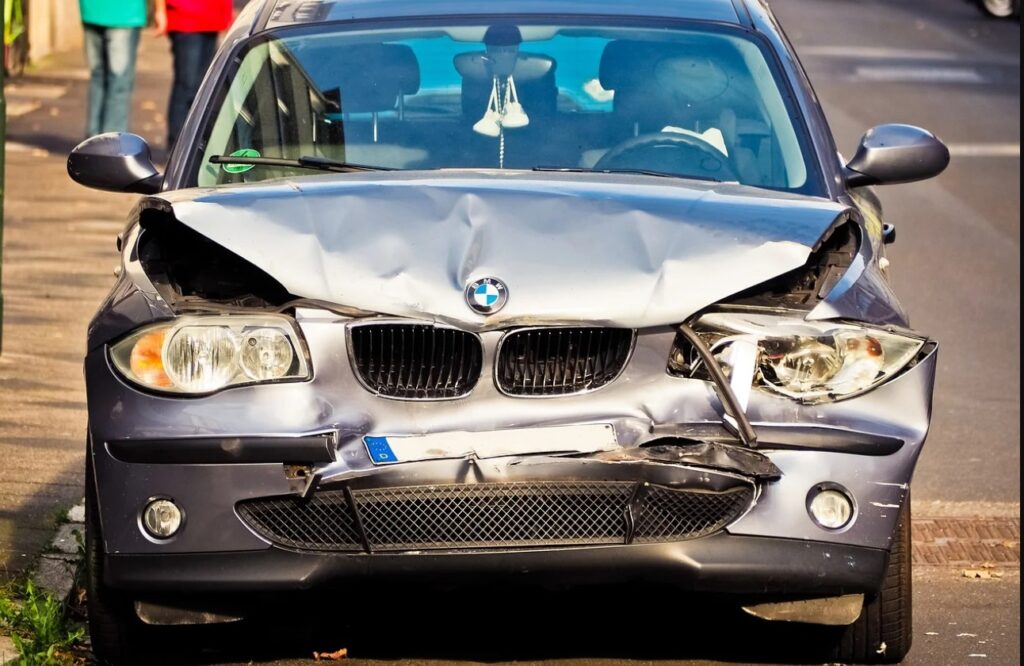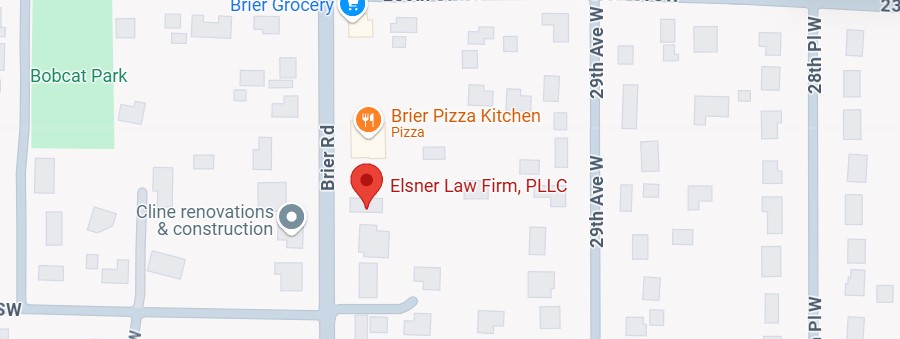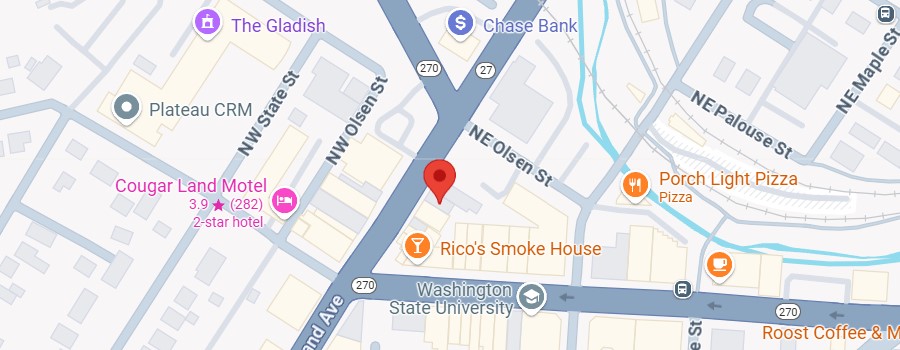Are Dash Cameras Legal in Washington State? Protecting You on the Road
Dash cameras are legal in Washington State, but drivers must follow specific laws related to placement, visibility, and audio recording. Dash cameras are becoming increasingly popular among drivers across Washington State. Whether you commute daily, drive occasionally, or simply want added peace of mind on the road, dash cams can play an important role in protecting your interests. Many drivers still ask the same question: are dash cameras legal in Washington State? This guide explains Washington dash cam laws, how to install them legally, and how dash cam footage can help protect you after an accident.
What Are Dash Cameras?
Dash cameras, also known as dashboard cameras, are devices that are mounted on your vehicle’s dashboard. Their purpose? To be an impartial witness, recording every detail that unfolds on the road in case of an accident. If you are involved in a car accident, dash cam footage can provide crucial evidence to support your case. Knowing the first 24 hours: what to do after you get into a car collision can make a significant difference in the success of your claim. For more information about car accidents and legal help, visit the Elsner Law Firm’s car accidents page.
Where NOT to Mount Your Dash Cam in Washington
While we’ve covered the legal requirements for dash cam placement, it’s equally important to know exactly where you cannot mount your device. Violating these placement rules can result in traffic citations and may render your dash cam footage inadmissible in legal proceedings.

Prohibited Dash Cam Locations in Washington State:
Center of the Windshield: This is the most common mistake drivers make. Mounting your dash cam in the center of your windshield directly obstructs your field of vision and violates Washington State law.
Behind the Rearview Mirror (If It Exceeds Size Limits): This location is only legal if the device doesn’t exceed the five-inch square limit on the driver’s side or seven-inch square on the passenger side.
Lower Windshield Areas: Placing your dash cam in the lower portion of your windshield obstructs your view of the road immediately ahead, including pedestrians and cyclists.
Side Windows: Mounting dash cams on side windows blocks your ability to check blind spots and see approaching vehicles, creating serious safety hazards.
Areas That Block Safety Equipment: Never mount your dash cam in a location that obstructs your rearview mirror, side mirrors, or factory-installed safety sensors.
Remember, even if your dash cam is within the legal size limits, any placement that materially obstructs the driver’s clear view is prohibited. When in doubt, mount your dash cam on the dashboard itself.
Legal Restrictions on Dash Cam Placement
In Washington State, dash cams are legal, with a few laws that you must be aware of. It is against the law to mount them on your windshield, as they can obstruct your view of the road. State law prohibits mounting dash cams or other non transparent objects on the front windshield of a motor vehicle if they obstruct the driver’s view. The device must not obstruct an area larger than a five inch square on the driver’s side or a seven inch square on the passenger side, as per dash cam laws. Dash cam placement should avoid blocking the rearview mirror or any other windows to maintain the driver’s clear view and driver’s vision. Instead, place them securely on your dashboard or the passenger side to ensure compliance with dash cam laws and local laws.
Proper Dash Cam Installation
When it comes to installation, most dash cams are designed for easy installation and can be mounted legally on the dashboard or passenger side, ensuring compliance with local laws and state law. To install dash cams legally, always follow the manufacturer’s instructions and avoid any placement that must not obstruct the driver’s view. Proper installation is a key part of overall vehicle safety, similar to why we recommend that parents regularly replace car seats after any significant impact to ensure maximum protection.
Benefits of Using Dash Cams
But why should you consider investing in a dash cam? The benefits might surprise you. Dash cams have proven to be incredibly helpful in protecting drivers’ interests. From hit-and-runs to accidents and more, these silent witnesses have saved drivers money in the long run. The peace of mind that your vehicle is protected by an unbiased observer is truly priceless. Dash cams are perfectly legal in Washington State as long as you install dash cams in accordance with state law and do not obstruct the driver’s view, ensuring you use your dash cam legally. Beyond hardware, the importance of defensive driver training in saving lives cannot be overstated as a proactive way to stay safe.

Dash Cams for Parking Protection
Even if you’re not seriously injured or your vehicle isn’t severely damaged, the blame game can still rear its head. Having a dash cam puts you on the safe side, ensuring you have video evidence to support your side of the story. Dashcam footage and video footage can present strong and irrefutable evidence to the insurance company, especially in cases involving another driver or other drivers, such as running a red light. This strong evidence can help keep roads safe by preventing rear-end collisions through accountability and clear evidence of fault.
Dash Cams vs. Car Alarms
But what about those who think, “I don’t drive enough to need a dash cam. I have a car alarm.” Unfortunately, the safety of your vehicle doesn’t end when you park it. Who hasn’t experienced the frustration of finding scratches, dents, or even worse, after leaving their car unattended? Whether it’s a hit-and-run, vandalism, or theft, accidents can happen when you’re away from your vehicle. Car alarm systems are designed to deter thieves, but they often fall short in preventing “smash-and-grab” break-ins. Dash cams offer parking surveillance features, providing the peace of mind you need wherever you are. With the ability to access all data remotely from your smartphone, tablet, or computer, you can rest easy knowing your vehicle is protected.
Impact on Insurance Premiums
Now, you might be wondering, “Will installing a dash cam lower my insurance premiums?” The answer isn’t straightforward. While not all car insurance providers offer discounts for having a dash cam, it can indirectly impact your premiums in various ways. The footage captured by your dash cam can provide crucial information about who was involved in an accident, serving as a powerful tool in determining fault. Understanding why insurance is not always on your side after a car accident highlights why having your own objective video evidence is so critical when dealing with adjusters.
Additional Features of Dash Cams
Furthermore, the built-in GPS in your dash cam allows you to timestamp your footage with the date, time, and speed. This information can be vital when disputing an unfair driving ticket that could otherwise drive up your insurance premium. Additionally, dash cams protect you against auto insurance fraud, revealing the truth about an incident and shielding you from unjust financial burdens.
Common Misconceptions About Dash Cams
Now, you might be thinking, “I’m a good driver! I never get into accidents.” This is a common refrain for those hesitant to get a dash cam. While you may be a safe and responsible driver, not everyone on the road follows the same playbook. Accidents do happen, and a dash cam is not meant to prevent them. Instead, it serves as a recording device, providing an objective account of what transpired. By documenting the top 3 causes of car accidents in Washington State, dash cams help ensure the truth is told even when other drivers are distracted or speeding.
Dash Cam Laws by State: How Washington Compares
If you travel frequently across state lines, understanding how dash cam regulations vary can help you stay compliant wherever you drive. While Washington’s laws are relatively permissive, each state has specific requirements.
Washington State
Dash cams are legal with windshield mounting restrictions: devices cannot exceed five inches square on the driver’s side or seven inches square on the passenger side. Dashboard mounting is the safest legal option.
Oregon
Oregon law prohibits any objects on the windshield that obstruct the driver’s view. Dashboard mounting is preferred, though small dash cams in lower windshield corners are generally tolerated.
California
California has some of the most specific dash cam laws. Dash cams can be mounted on the windshield only in a five-inch square in the lower corner of the passenger side or a seven-inch square in the lower corner of the driver’s side, outside the area swept by wipers.
Colorado
Colorado prohibits mounting non-transparent materials on windshields that obstruct the driver’s view. Dashboard mounting or lower windshield corners are recommended.
Maryland
Maryland law prohibits objects on the windshield unless required by law or minimal in size. Dash cams should be mounted on the dashboard to ensure compliance.
Dash Cams in Company and Fleet Vehicles
For business owners and employees who drive company vehicles in Washington State, dash cam installation raises unique legal and privacy considerations.
Employer Rights and Employee Privacy
In Washington State, employers have broad legal authority to install dash cams in company-owned vehicles. Since the vehicles are company property and driving occurs during work hours, employers can generally monitor driving behavior without employee consent for video recording.
However, audio recording in company vehicles is subject to Washington’s two-party consent law. Many drivers wonder, do trucking companies use driver-facing cameras? The answer depends on the company’s specific safety policies and compliance with privacy laws. Employers must inform employees that audio recording is active and obtain consent, or disable audio recording features entirely.
Best Practices for Businesses
Clear Written Policy: Provide employees with written notice about dash cam installation, explaining what’s recorded, how footage is used, and retention periods.
Audio Recording Consent: Obtain signed consent forms from all drivers if audio recording is enabled, or simply disable audio features.
Limited Access: Restrict dash cam footage access to relevant managers and only review footage for safety investigations or accident response.
Reasonable Use: Ensure dash cam use is tied to legitimate business purposes like safety and liability protection, not invasive surveillance.
Rideshare Drivers (Uber/Lyft)
Rideshare drivers in Washington must also comply with two-party consent law for audio recording. Best practice is to display clear signage in your vehicle stating “This vehicle is equipped with audio and video recording for safety purposes.” This notice serves as implied consent, passengers who choose to ride after seeing the notice have consented to recording. Knowing if Uber is responsible for passenger injuries is another critical part of protecting yourself as a professional driver.
Understanding Washington’s Traffic Surveillance Systems
Many drivers searching for dash cam information also have questions about other cameras operating throughout Washington State. It’s important to understand the difference between your personal dash cam and government-operated surveillance systems.
Washington State DOT Traffic Cameras
The Washington State Department of Transportation (WSDOT) operates hundreds of traffic monitoring cameras along highways and major roadways. These cameras monitor traffic flow and provide real-time information to travelers through the WSDOT website. Unlike enforcement cameras, these are purely informational and do not issue tickets.
Red Light and Speed Cameras
Washington State law allows cities to operate red light cameras and speed cameras in specific locations, primarily school zones and high-risk intersections. These automated enforcement systems photograph vehicles that violate traffic laws, and citations are mailed to the registered owner. Your personal dash cam can protect you if you receive an erroneous ticket by providing your own video evidence. If you are ever pulled over by an officer, following proper traffic stop etiquette is essential for a safe encounter.
Flock Safety Cameras
Flock Safety automated license plate readers (ALPRs) have been adopted by some Washington cities and law enforcement agencies. These cameras capture license plate data to help solve crimes and locate stolen vehicles. Privacy advocates have raised concerns about these systems in several Washington communities.
How These Differ From Your Dash Cam
Your dash cam is fundamentally different, it’s your private property, under your control, and designed to protect your interests on the road. You control when it records, what happens to the footage, and who sees it (subject to legal discovery). Government traffic cameras serve public safety purposes with footage controlled by government entities.
Having your own dash cam provides an independent record that can corroborate or challenge footage from government systems, offering additional angles and context that fixed cameras might miss.
Dash Cam Footage and Legal Proceedings
Law enforcement and insurance companies often rely on dashcam footage as strong evidence in a car accident case, and dash cams can also help document police activity if needed. Police officers may recommend taking photos and videos at the scene, and dash cam footage can serve as irrefutable evidence in legal proceedings.
Using Alternatives to Dash Cams
Now, you might be thinking, “Can’t I just use my GoPro or smartphone as a dash cam?” While these devices can serve as alternatives, there are a few things to consider. Mounting your GoPro or smartphone securely on the dashboard or windshield can be challenging, not to mention their lack of auto-start capabilities. It’s all too easy to forget to start the recording before you hit the road. Conversely, dash cams are designed to power on and off automatically, requiring no driver interaction. Furthermore, GoPros and smartphones are not built for continuous, long-term recording. In extreme temperatures, they may overheat and shut down to cool off. Dash cams, on the other hand, are purpose-built and tested to provide reliable recording regardless of the weather. While GoPros and smartphones can record video footage, they may not comply with dash cam laws regarding placement in a motor vehicle.
We recommend shopping with Black Box My Car for all your dash cams needs!
Dash Cams for Motorcycle Riders
Motorcyclists face unique challenges on Washington roads, with heightened vulnerability in accidents and often being blamed unfairly for collisions. Motorcycle dash cams have become increasingly popular tools for riders seeking the same protection four-wheeled drivers enjoy. Beyond technology, we are committed to rider safety through initiatives like providing free bike helmets to our community.
Legal Considerations for Motorcycle Dash Cams
Motorcycle dash cams are legal in Washington State and follow the same general principles as automotive dash cams. Since motorcycles don’t have windshields in the traditional sense, obstruction laws are less of a concern. However, riders must ensure their cameras don’t interfere with safe operation of the motorcycle or obstruct critical mirrors and gauges.
Mounting Options for Motorcycles
Unlike cars, motorcycles require specialized mounting solutions. Common mounting locations include the handlebars, helmet, rear frame, or fork tubes. Many riders opt for helmet-mounted cameras for the best first-person perspective, though these can be more vulnerable to theft when parked. Handlebar-mounted cameras offer stability and protection from the elements while providing a clear forward view.
Weather and Durability Requirements
Washington’s wet climate demands motorcycle dash cams with superior weather resistance. Look for cameras rated IP67 or higher for water and dust protection. Temperature fluctuations from summer heat to winter cold also require cameras designed for extreme conditions. Quality motorcycle dash cams should feature anti-vibration technology, as motorcycles experience significantly more vibration than cars.
Why Motorcyclists Especially Need Dash Cams
Motorcycle accidents often result in more severe injuries, and determining fault becomes critical for medical expense recovery and legal proceedings. Dash cam footage can prove a car changed lanes into your path, failed to yield, or violated your right of way, scenarios where motorcyclists are frequently blamed despite being the victim. Additionally, motorcycle theft is a concern in urban areas, and some dash cam systems offer parking surveillance to protect your investment even when you’re away from your bike.
For Washington motorcyclists, investing in a quality dash cam isn’t just about legal protection, it’s about ensuring your story is heard accurately if the worst happens on the road.
Advantages and Disadvantages of Dash Cams: A Comprehensive Analysis
In the fast-paced world we live in, the use of technology has become more prevalent, even in areas we might not have considered before. One such technology that has gained popularity in recent years is the dash cam. At first glance, the idea of having a camera in your car might seem unnecessary, but there are actually many advantages to using a dash cam, especially when it comes to providing video footage that can serve as strong evidence or even irrefutable evidence in disputes with an insurance company.
Advantages of Dash Cams
Having a dash cam installed can offer numerous benefits. Here are some of the key advantages:
- Evidential Support: In the unfortunate event of a crash or other incident, having dash cam footage can provide crucial evidence. This can be especially helpful for insurers and law enforcement, reducing reliance on third-party witnesses.
- Fraud Prevention: Dash cam footage can be instrumental in defending against fraudulent claims and uncovering organized crime schemes related to staged accidents.
- Quick Resolution: The swift availability of footage can aid in resolving liability issues promptly, saving time and money on investigations, earnings loss, and vehicle hire costs.
- Safety Promotion: By promoting safe and responsible driving, dash cams can contribute to a safer road environment for all, including vulnerable road users like cyclists and pedestrians.
- Insurance Premium Reduction: Installing a dash cam can potentially lower your insurance premium, making it a sound investment for the long term.
While the advantages are clear, it’s important to also consider some potential drawbacks of using dash cams.
Disadvantages of Dash Cams
Despite their benefits, dash cams come with a few considerations to keep in mind:
- Limited Perspective: Dash cams offer a one-sided view of events and may not capture the complete story, as some factors can be out of the camera’s frame.
- Legal Restrictions: In certain countries, using dash cams might be illegal, leading to fines or legal repercussions if not compliant with local regulations.
- Privacy Concerns: There is a risk of infringing on privacy rights, which has led to bans in some regions due to the invasive nature of continuous video recording.
- Potential Misuse: While dash cams can aid in proving innocence, they can also be used against you if found at fault in an accident.
- Cost and Distraction: The initial expense and potential distraction posed by dash cams should be weighed against their benefits, as they can impact driving focus and incur penalties if obstructing the driver’s view.
For those considering dash cam installation, it’s crucial to evaluate both the pros and cons carefully.
Key Considerations Before Getting a Dash Cam
- Quality Assurance: Ensure the camera provides clear footage, essential for legal purposes where readability of license plates is crucial.
- Security and Compliance: Opt for tamper-proof models that uphold data protection regulations like GDPR to safeguard privacy and data integrity.
- Functional Alignment: Select a dash cam that meets your specific needs, avoiding unnecessary features that could inflate costs.
- Legal Adherence: Before you install dash cams, review local laws regarding dash cam placement. Proper dash cam placement is essential, not only to comply with legal requirements but also to avoid obstructing your view. Local laws may dictate where and how you can mount your dash cam, so always ensure your installation is both safe and legal.
By staying informed and making informed choices, you can maximize the benefits of dash cams while mitigating potential drawbacks. Remember, safety and legal compliance should always be top priorities when integrating technology into your vehicle.
Remember, your safety and well-being are our top priorities, and we are here to provide expert guidance and support during every step of your personal injury legal journey. Feel free to reach out to us with any questions or for your free consultation 206-447-1425.
Investing in a dash cam is one of the best steps you can take to protect yourself and your vehicle. Beyond offering peace of mind, dash cams act as unbiased witnesses, safeguard against auto insurance fraud, and provide valuable evidence in assigning fault during accidents. At the Elsner Law Firm, our dedicated team is committed to providing expert legal guidance to accident victims. Let us help you navigate the legal challenges you may face after an accident and remember to always stay safe on the road. Contact us today at 206-447-1425.
Using Your iPhone or Smartphone as a Dash Cam
With smartphones becoming increasingly sophisticated, many drivers wonder if they can use their iPhone or Android device instead of purchasing a dedicated dash cam. While this approach has some merit, there are important considerations specific to Washington State law.
iPhone Dash Cam Apps
Several apps transform your iPhone into a functional dash cam, including popular options like Nexar, DailyRoads, and AutoBoy. These apps offer features like automatic recording, GPS tracking, and cloud backup of footage.
Legal Compliance for Smartphone Mounting
Here’s the critical issue: mounting your iPhone on your windshield must comply with Washington’s five-inch square (driver’s side) or seven-inch square (passenger’s side) restrictions. Most modern iPhones exceed these dimensions, making windshield mounting potentially illegal. Dashboard mounting is the safest legal option for using your phone as a dash cam.
Additionally, Washington’s distracted driving laws prohibit handheld phone use while driving. Your iPhone must be mounted and recording automatically without requiring interaction to remain compliant.
Pros and Cons vs. Dedicated Dash Cams
Advantages:
- No additional purchase required
- High-quality video resolution
- Cloud backup capabilities
- GPS integration for location data
Disadvantages:
- Must manually start recording (unless using specific apps)
- Battery drain and overheating issues
- Phone unavailable for calls or navigation while recording
- Not designed for continuous loop recording
- Mounting may not comply with Washington windshield laws
- Theft risk when left visible in parked cars
While smartphones can serve as temporary solutions, serious drivers who prioritize legal protection should invest in purpose-built dash cams designed for continuous automotive use and full compliance with Washington State regulations.
Frequently Ask Questions
1. Are dash cameras legal in Washington State?
Yes, dash cameras are legal in Washington State. You can use a dash cam as long as it does not block your view of the road and follows placement rules for windshield mounting.
2. Where can I legally mount a dash cam in Washington?
The safest legal option is mounting the dash cam on your dashboard. Windshield mounting is only allowed if the device stays within a five-inch square on the driver’s side or a seven-inch square on the passenger side and does not block visibility.
3. Can dash cam footage be used as evidence after a car accident?
Yes. Dash cam footage is commonly used by insurance companies and attorneys to help determine fault after an accident. Clear video can support your version of events and help resolve disputes faster.
4. Is audio recording allowed on dash cams in Washington State?
Audio recording is more restricted. Washington is a two-party consent state, meaning everyone being recorded must agree to audio recording. If you don’t get consent, it’s best to turn the audio feature off.
5. Can I use my phone or iPhone as a dash cam in Washington?
You can, but it comes with risks. Most smartphones are too large to be legally mounted on the windshield. Dashboard mounting is safer, and the phone must record automatically without driver interaction to avoid distracted driving violations.
6. Do dash cams lower car insurance premiums in Washington?
Not always. While most insurers don’t offer direct discounts for dash cams, footage can help protect you from false claims, prove fault, and prevent premium increases after an accident.
Audio Recording and Dash Cams: Understanding Washington’s Consent Laws
When it comes to dash cams in Washington State, it’s not just video recording you need to think about audio recording brings its own set of legal requirements. Washington is known as a “two-party consent” state, which means that all parties involved in a private conversation must give their permission before any audio can be recorded. This law is especially important for drivers who use dash cams that have built-in microphones or the ability to record sound inside the vehicle.
If your dash cam is set up to record audio, you must obtain consent from everyone in your car before recording any conversations. This applies whether you’re driving with friends, family, or even rideshare passengers. As the driver, it’s your responsibility to inform all passengers that audio recording is taking place and to get their agreement. Failing to obtain consent can lead to legal complications, including potential fines or the exclusion of your dash cam footage as evidence in a car accident case.
To ensure compliance with Washington State’s consent laws, consider posting a visible notice in your vehicle or verbally notifying passengers as soon as they enter. If you’re unable to obtain consent from everyone, it’s best to disable the audio recording feature on your dash cam. By staying informed and respecting privacy laws, drivers can use dash cams legally and avoid potential legal issues while still capturing valuable video evidence on the road.






